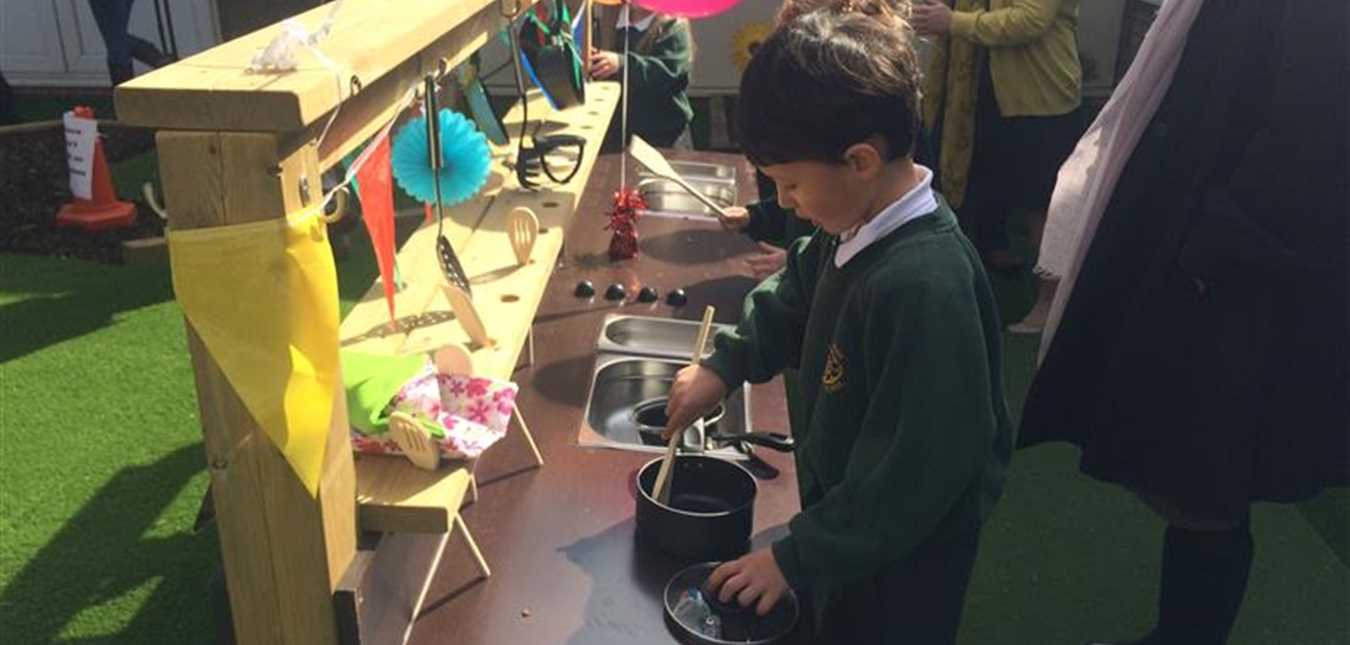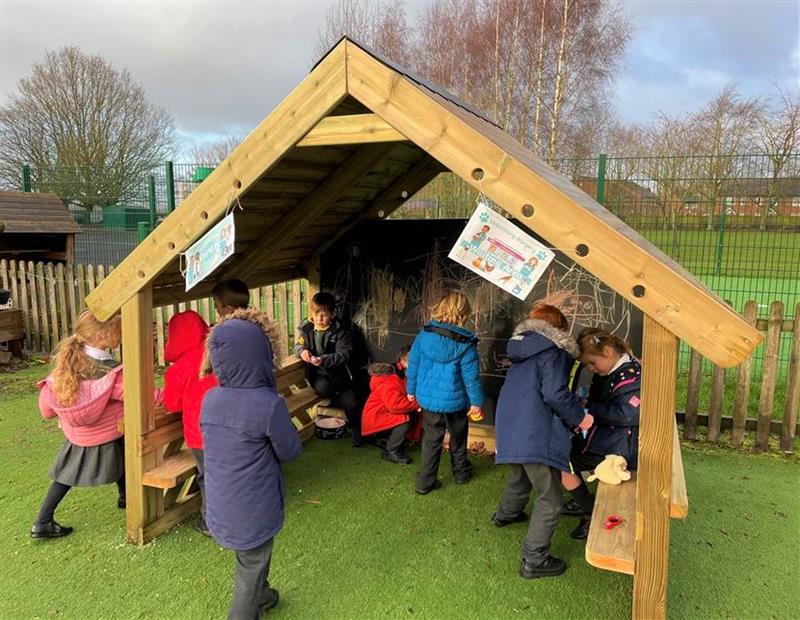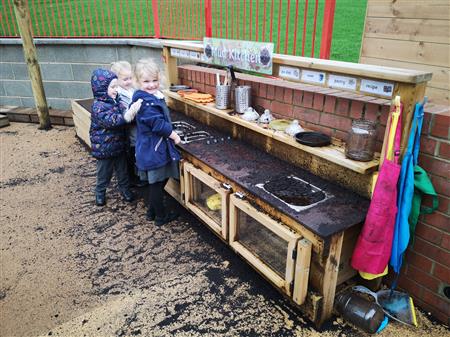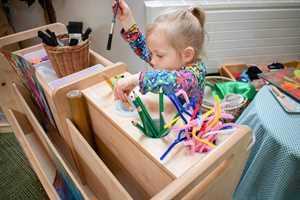Children's Health
The Top 5 Reasons for encouraging children to pretend play and 'make believe'
It is no secret that Pretend Play forms an essential part of a child’s development. Children learn by observing, imagining and doing.
We often think of “play time” as a time reserved for running around the playground and letting off steam between lessons, or for sitting down quietly with a few good toys to tinker with. These forms of play are important in themselves, but they are not the only forms of play.
Learning through play is now widely recognised by practitioners as an essential method of learning and development for young children, and a number of theorists, such as Piaget, and researchers have identified the values of pretend or imaginative play as a vital contributor to the normal development of a child.
At any Early Years setting and across Primary Schools, you will see children enjoying imaginative play; perhaps zooming a piece of paper around the room as if it were a racing car or a flying aeroplane, or playing the part of a firefighter in their engine, a shopkeeper, a parent, a dentist or a nurse.
Children use objects to represent something else, or assign themselves and others roles and then act them out. It may seem very simple, but in pushing back the barriers of reality these children are learning and developing many different and important life skills.
This pretend play, which allows different perspectives to be taken, and during which ideas and emotions are moulded and rearranged, is a major feature of a child’s social and cognitive development.
Here we look at the 5 key reasons why teachers encourage their EYFS, Key Stage 1 and Key Stage 2 learners to get involved in the world of make-believe and to participate in pretend play every day:
1. Pretend Play encourages imagination and creativity
Research has identified that an important benefit of early pretend play is its enhancement of a child’s capacity for cognitive flexibility and, ultimately, creativity.
By absorbing themselves in an imaginative game, whatever it may be, children are given the opportunity to practice using their imagination, to exercise their brain and train it to think creatively and to learn how to think for themselves.
The ability to use our imagination is a cognitive skill that we all require throughout life, and we need to encourage children to learn how to do this from the start with frequent opportunities for imaginative play.
It is because of the development of the imagination during childhood that we as adults become capable of carrying out most of the tasks that daily life requires. Albert Einstein said, “Logic will get you from A to Z; imagination will get you everywhere.” It is true!
Adults have to use their imagination every day to help them solve problems, make plans, to prosper and discover or invent new things. Imagination is required to properly visualize and to be able to enjoy pleasures in life such as a good book or a film.
It is an essential enabler for understanding other people’s perspectives and for thinking creatively.
2. Pretend Play can support personal, social and emotional development
When a child engages in pretend or imaginative play, by pretending to be different characters or by controlling objects in their own way and observing the result, they are essentially experimenting with the social and emotional roles of life.
It’s about learning who they are as individuals and how they fit into the world around them, how the world works and how to walk in somebody else’s shoes.
They develop empathy and learn how to co-operate, to become responsible and how to share responsibility.
All young children have moments of selfishness and this is normal (it’s all about survival!). With maturity and opportunities for experimental pretend play, children begin to recognise and learn how to respond positively towards other people’s feelings.
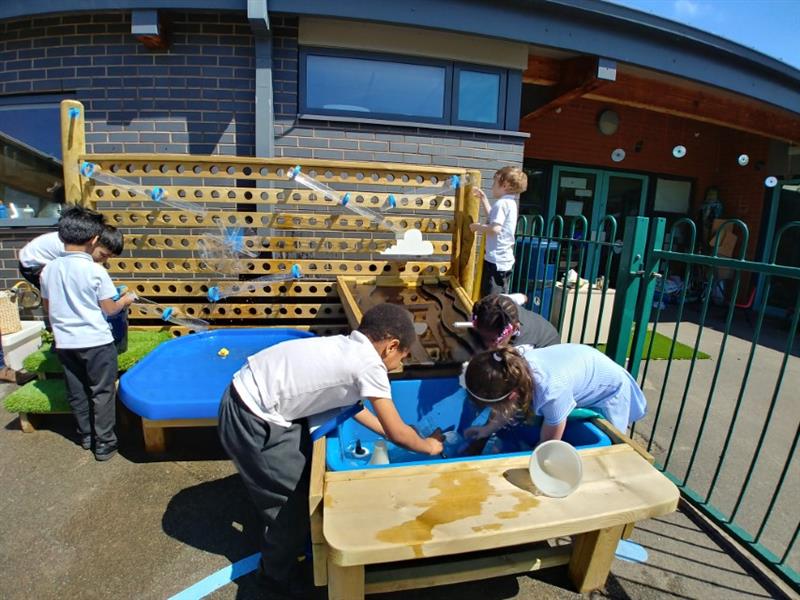
Think of a role play situation where children are playing together. They have to agree on a topic and negotiate roles and rules. All of this requires co-operation, collaboration and an understanding of others.
The idea of “theory of mind”, an awareness that a person’s thoughts, opinions and feelings may be different from our own, and that we are all capable of taking on different perspectives, is closely linked to pretend play.
For example, children who regularly take part in pretend play activities involving role play are better able to display empathy because they have effectively experimented with emotions and had a go at being “somebody else” for a while.
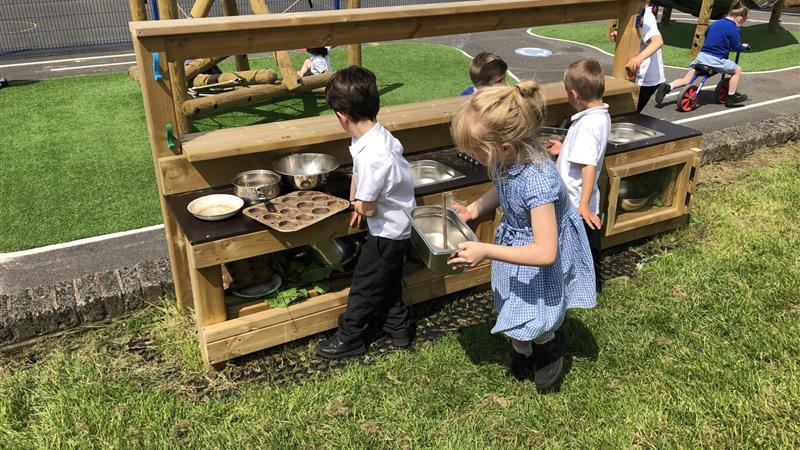
Pretend play also benefits children hugely in developing their self-esteem and self-awareness. There is a sense of freedom which flows from the realisation that you can be anything by just pretending, and children love this! It’s a safe and secure way to experiment and test boundaries, and build confidence.
Through make believe, pretend play allows children to experience and express both positive and negative feelings. They learn how to modulate the effect of these emotions, how to deal with them positively, how to control their impulses, learn good manners and positive behaviour, and in some cases how to reduce aggression.
3. Pretend Play can help improve language and communication skills
It is fascinating to listen to our children interacting with friends. They often come out with words or phrases that we had no idea they knew! They can do very amusing impersonations of their parents, carers and teachers too!
Pretend play allows children to experiment with and learn about the power of language, how it affects us and those around us. It also helps them to understand that words give us the means to re-enact situations, to put our point across and to make ourselves heard and understood.
Pretend play offers the perfect opportunity to expose children to new vocabulary, and the more different scenarios they are introduced to, the more scope there is for widening their vocabulary!
They could spend a whole afternoon at the “airport” preparing them for a new experience, or a whole morning in a “hospital” learning all the different words associated with a potential visit. Not only does pretend play broaden their horizons in this way, but it helps to reduce anxiety as language and situations become more familiar.
Personal vocabulary flourishes as they begin to use words appropriately and in context.
Through imaginative play and role play, children learn to choose their words carefully so that others can understand what they are trying to communicate.
In turn, children learn to listen properly to what others have to say, as they have to do this in order to understand what is going on around them and how they fit in - as essential skill for learning anything at school!
4. Pretend Play helps to develop thinking, learning and problem solving abilities
By its very nature, pretend play presents children with a variety of different problems to solve and scenarios to think about carefully.
Deciding what games to play, what roles to take on, who will be involved and how, what materials are needed for the game and what rules apply to the game, and how to overcome scenarios where something “goes wrong”, all require much thought and deliberation in one way or another.
Participating in pretend play in such a way requires a child to call upon cognitive thinking skills that they will find themselves using in each aspect of everyday life, and this will stay with them all the way through to adulthood.
Memories are formed through imaginative play. Children make use of images that they have created in their minds to recreate past experiences during pretend play.
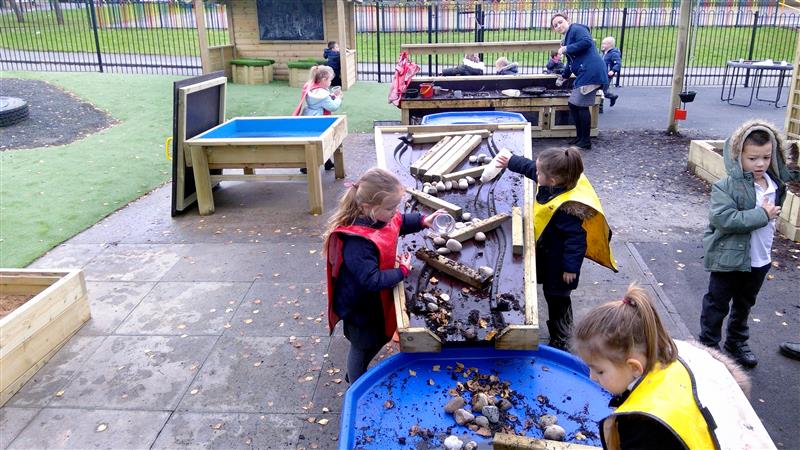
This form of abstract thinking helps them to work out what has happened in any acted out scenario, and to learn how to gather and manage their thoughts and reactions to such a scenario, and to mentally solve problems that they may have encountered in these scenarios so that they know how to overcome any difficulties the next time.
It can be something as simple as setting a table for a meal or calling a family member on the telephone, or something as complicated as navigating their way to school or dealing with a trip to the dentist.
And by incorporating props such as books and magazines, signs, coins, food items, pens and paper (or anything else you have to hand!), pretend play can help a child to develop mathematical and literacy skills if these props are used appropriately.
Pretend play helps children gain a better understanding of science, the wider world in which they live and important world events that occur around them.
Whether they are discovering space and the solar system by acting out the role of Tim Peake blasting off to the International Space Station in his rocket, or learning about prehistoric times by stomping around the school playground like dinosaurs, imaginative play has an essential part to play.
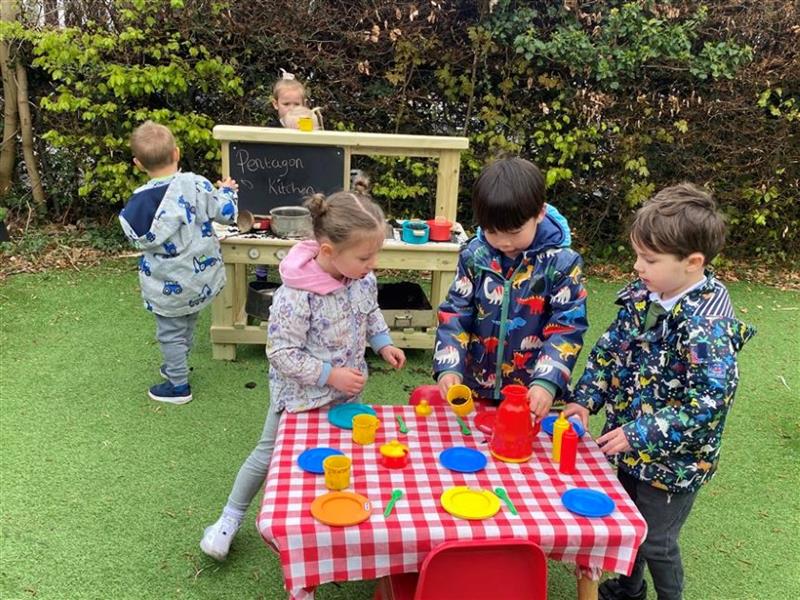
5. Pretend Play can be used to enhance physical development
Aside from all the wonderful cognitive benefits that pretend play has to offer, it is important to remember that pretend play is very often physical and is a wonderful way for children to be active, to exercise and to develop their motor skills.
Gross motor skills are put to good use as pilots run around flying their aeroplanes, fire fighters climb up ladders and whizz down slides throwing water everywhere, goodies run after baddies and chase them over play equipment, horses gallop across fields and over jumps and would-be Olympic athletes and gymnasts put their skills to the test in the school playground.
Fine motor skills and hand to eye co-ordination are improved as children try to dress dolls with fiddly bits of clothing, dish out coins to pay for items they have bought in a shop, or make recipes with “ingredients” plucked fresh from the sandpit.
Even in situations where physical pretend play appears to become a bit too “physical”, evidence suggests that a role play game involving rough and tumble, provided that this is well monitored and doesn’t go too far, can help in the development of the frontal lobe, the front part of the brain, that regulates behaviour.
Rather than breaking it up too quickly, allowing children to play physically, if this is what they enjoy doing, helps them to learn self-regulation and to understand when this type of behaviour is appropriate or actually when it is not.
And as if all that isn’t enough, pretend play is fun too! When we let our imaginations take over and when we really play together, as children want to do, there are no limits as to where their minds can take them and there is no chance of running out of things to enjoy and talk about with them!
If you are looking to enhance your school’s play facilities to actively encourage Pretend Play, please Contact Us to see how we can help. We have some really exciting, Imaginative and Creative School Playground Equipment to encourage young minds to truly make-believe.
If you enjoyed this post, you will definitely find these interesting:
The Importance of Building Dens and Ways to Promote Den-Making



